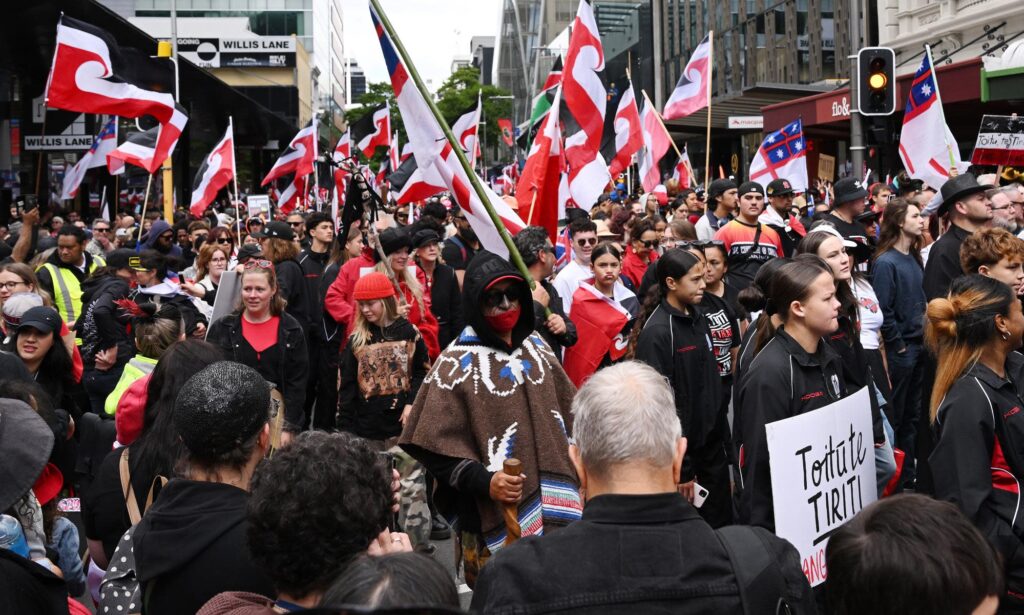A New Zealand parliamentary committee has advised against proceeding with the Treaty Principles Bill, a proposal aimed at redefining the principles of the Treaty of Waitangi.
The bill, introduced by the ACT Party, sought to replace established interpretations of the Treaty with new definitions. ACT Party leader David Seymour argued that the existing principles grant Māori unequal political and legal rights. However, the proposal faced significant opposition, with over 300,000 submissions received, the majority opposing the bill.
Critics contended that the bill was inconsistent with the Treaty, poorly developed, and potentially harmful to social cohesion. The Justice Committee, responsible for reviewing the bill, concluded its deliberations ahead of schedule and recommended its withdrawal.
The bill had previously sparked mass protests across the country. In November 2024, tens of thousands of New Zealanders marched to Parliament in Wellington, expressing their opposition. The protests were among the largest in the nation’s history, highlighting widespread public concern over the proposed changes.
Legal experts, academics, and Māori leaders also voiced strong criticism. The Ministry of Justice warned that the bill was not “grounded in the Treaty” and relied on a “novel reading” of the founding document not supported by available evidence.
While the National Party initially supported the bill’s preliminary stages as part of a coalition agreement, both National and New Zealand First have since indicated they will vote against it in its second reading. Prime Minister Christopher Luxon acknowledged the volume of public feedback and emphasized the need to conclude the debate.
Despite the opposition, ACT leader David Seymour defended the bill, suggesting a referendum to gauge public opinion. He stated, “If the government is not willing to pass this bill, then let the people decide.”




